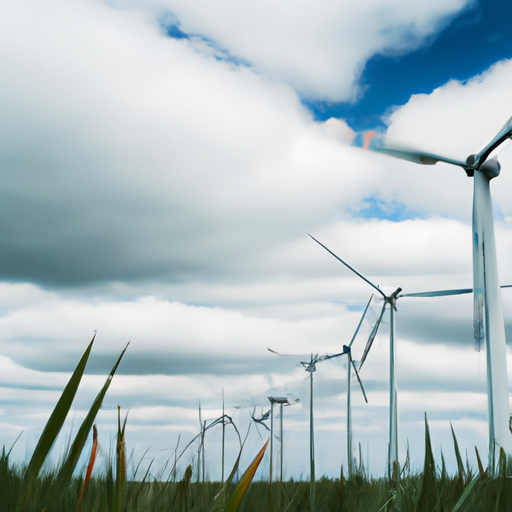In an era where sustainable energy is more crucial than ever, Ørsted has taken a formidable step by announcing its latest venture, Hornsea 3. Set to be a marvel in the domain of wind power, Hornsea 3 is not merely an advancement, but an exploration into the untapped potentials of renewable energy. Situated an impressive 160 kilometers off the coast of Yorkshire, this wind farm is gearing up to be the largest single offshore wind enterprise on the globe.
Completion, Capacity, and Context of Hornsea 3
With its blades scheduled to start spinning by the end of 2027, Hornsea 3 is designed to produce a staggering 2.9 gigawatts of energy. Its addition will scale the collective might of the Hornsea wind project series to an unprecedented 5.4 gigawatts. For perspective, that’s enough to power over 3.3 million homes in the United Kingdom. As Ørsted sets its sights even further, it lays the groundwork for Hornsea 4, which promises to infuse up to 2.6 gigawatts more into the UK’s energy landscape.
Investment Worthy of the Wind
The investment in Hornsea 3 speaks volumes of Ørsted’s conviction in renewable energy, with projected costs to erect this titanic wind farm landing somewhere between $10.3 billion and $11 billion. Each turbine in the 231-strong fleet stands as a testament to the commitment towards securing a greener future, while bolstering the UK’s position as a leader in offshore wind energy production.
Overcoming the Challenges: The Rocky Road to Hornsea 3’s Realization
In the tumultuous seas of development, Ørsted’s Hornsea 3 faced its share of swells. The industry-wide escalation in the cost of materials, compounded with stiffening interest rates and inevitable supply chain hiccups, threatened the project’s economic viability. Yet, Ørsted remained undeterred, navigating these challenges with strategic foresight.
Financial Framework and Strategic Moves
Encountering a setback initially due to the UK government’s conservative power price offer, the resultant auction witnessed a lackluster response with no bids coming forth. Nonetheless, the tides are turning, with plans to energize the next auction by nearly doubling the price per megawatt-hour. This adjustment could see Ørsted bidding for a substantial cut of Hornsea 3’s output, thereby securing a more lucrative return on investment.
Moreover, the company has taken prudent steps to obviate the financial strain wrought by inflation. By locking in a majority of the capital expenditure before inflation hit its stride, Ørsted has ensured cost-effectiveness for Hornsea 3. This preemptive strategy allowed the forging of advantageous deals, setting the stage for what might well become a crown jewel in the wind energy sector.
With these ambitious plans, Ørsted is not just propelling the UK towards a renewable future, but also redefining what it means to harness the wind. Hornsea 3 is a beacon of innovation, emblematic of mankind’s relentless pursuit of harmony between advancement and environmental stewardship.


























